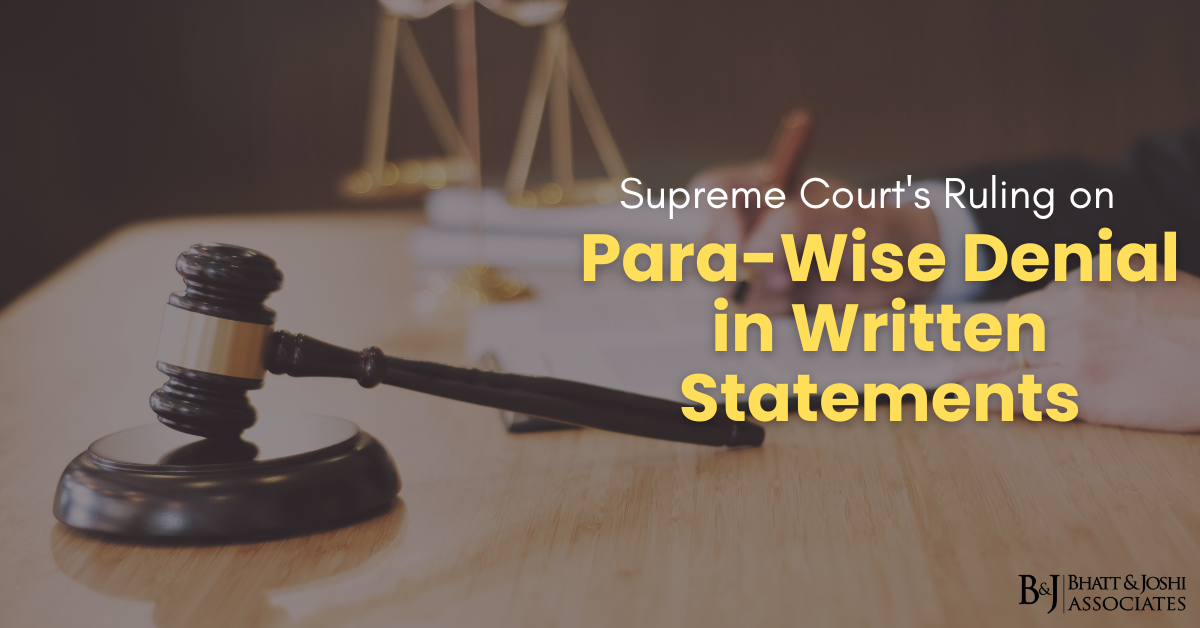
Introduction
In a significant ruling, the Supreme Court in Thangam And Anr. vs Navamani Ammal (2024 JC(SC) 3893) addressed the implications of failing to provide a para-wise reply to the plaint, underlining the importance of specific Para-Wise Denial in written statements under Order VIII Rules 3 and 5 of the Civil Procedure Code (CPC).
Case Background
The case revolved around whether the absence of a para-wise reply to the plaint in the written statement amounts to an admission of facts. The defendants in the case failed to respond specifically to each paragraph of the plaint, leading to confusion over what was admitted and what was denied.
Key Legal Provisions and Interpretation
- Order VIII Rules 3 and 5 of CPC: These rules mandate specific admissions and denials of the allegations made in the plaint. General or evasive denials are deemed insufficient.
– Rule 3: Requires the defendant to address each allegation of fact.
– Rule 5: States that any fact not denied in the written statement shall be deemed admitted.
- Proviso to Order VIII Rule 5: Although it generally requires that admitted facts need not be proved, it allows the court discretion to require proof of admitted facts in certain situations.
Court’s Observations on Para-Wise Denial
– The Supreme Court observed that without a para-wise reply, the court has to engage in a roving inquiry to determine admissions and denials, which can lead to confusion.
– The judgment emphasized that the absence of specific denials can be construed as admissions, thereby simplifying the burden of proof for the plaintiff.
“In the absence of para-wise reply to the plaint, it becomes a roving inquiry for the Court to find out as to which line in some paragraph in the plaint is either admitted or denied in the written statement filed, as there is no specific admission or denial with reference to the allegation in different paras.”
“Rule 5 provides that every allegation of fact in the plaint, if not denied in the written statement shall be taken to be admitted by the defendant.”
Implications of Para-Wise Denial in the Judgment
– Legal Clarity: This ruling clarifies the procedural requirements under the CPC, ensuring that written statements must address each fact specifically to avoid unintended admissions.
– Judicial Efficiency: By reinforcing the need for specific replies, the judgment aims to streamline judicial processes and reduce the time courts spend deciphering pleadings.
Conclusion
The Supreme Court’s decision in Thangam And Anr. vs Navamani Ammal underscores the critical importance of providing a detailed, para-wise reply in written statements to prevent the risk of admissions by default. This ruling is a crucial reminder for defendants to meticulously address each allegation in a plaint to safeguard their legal interests.













